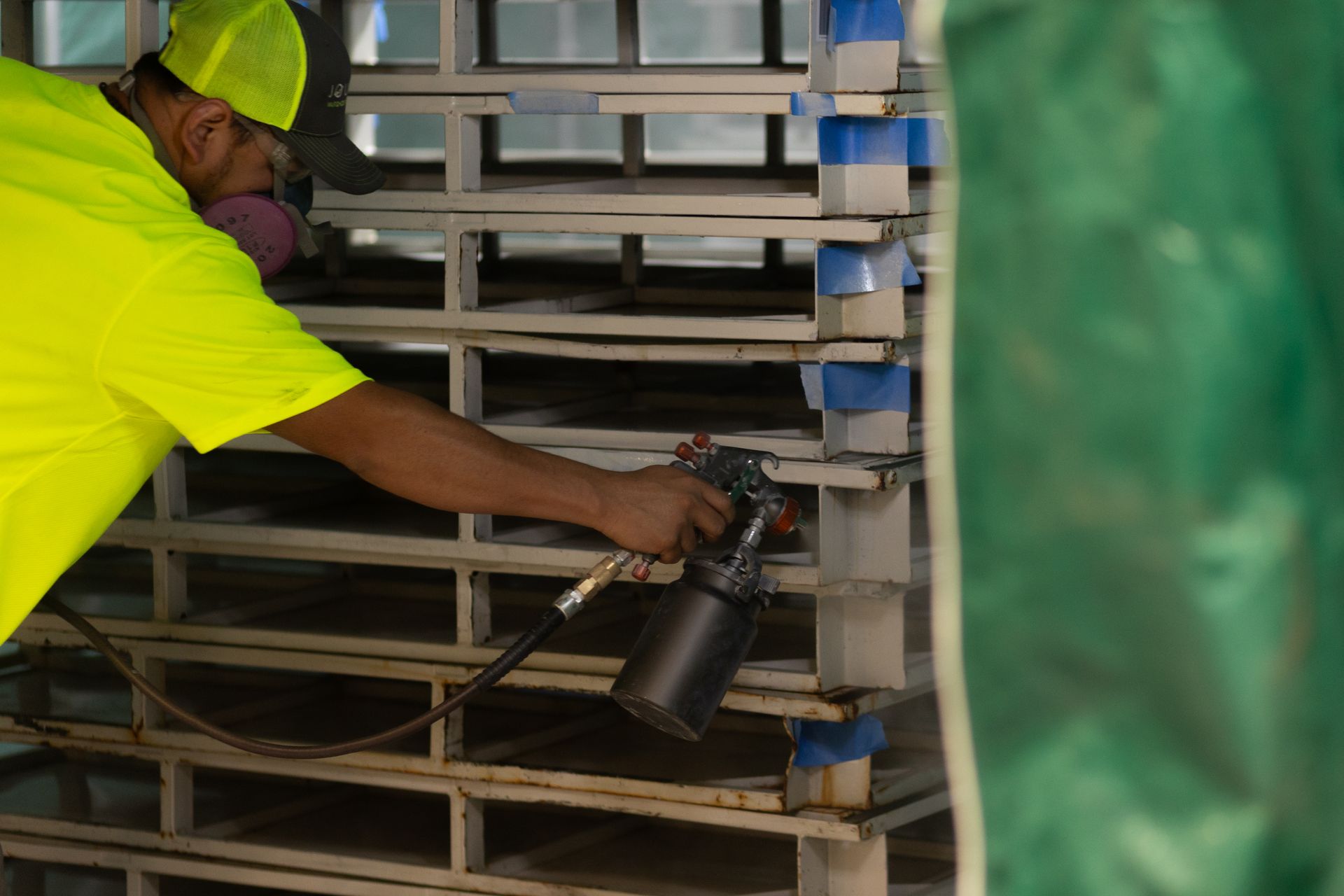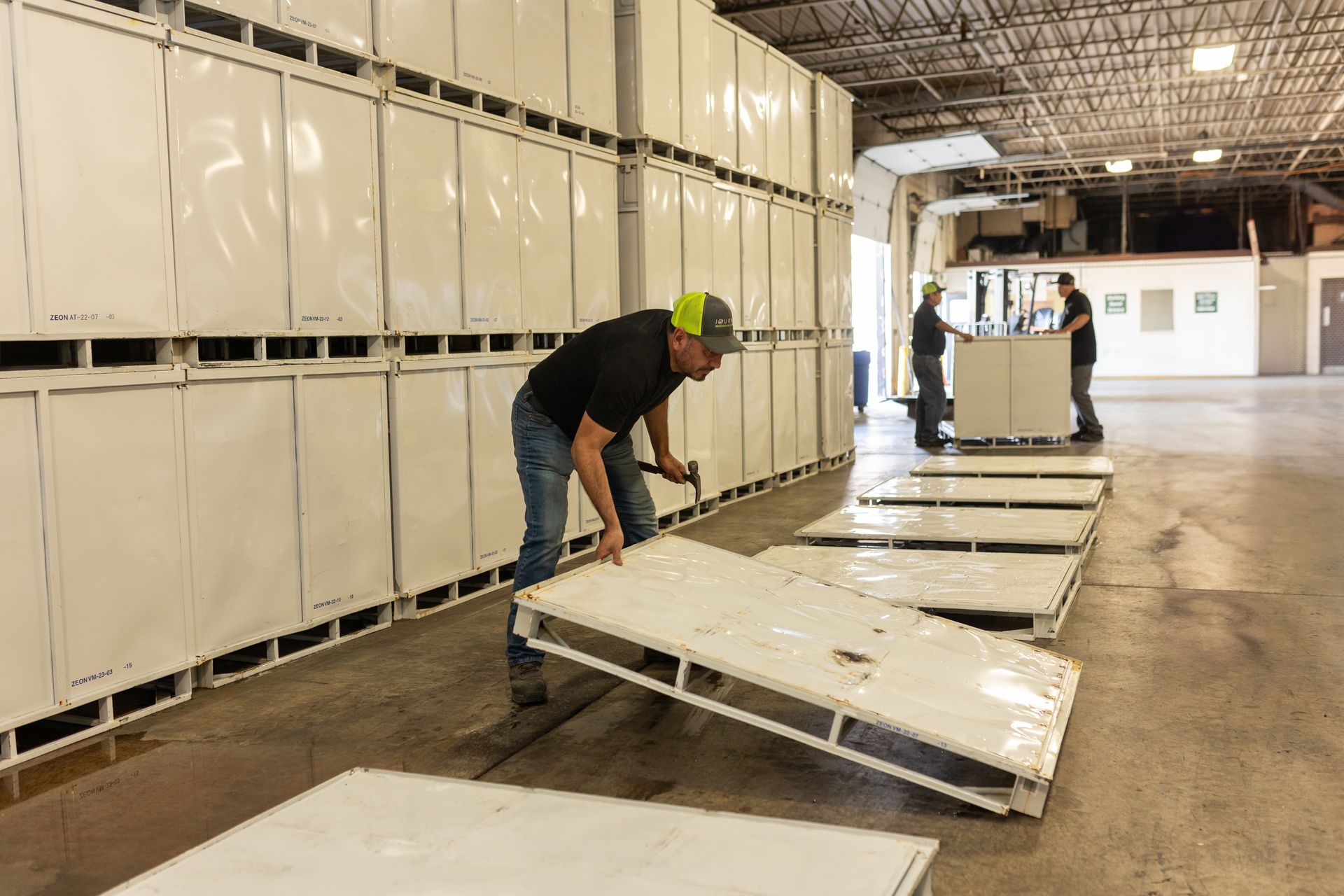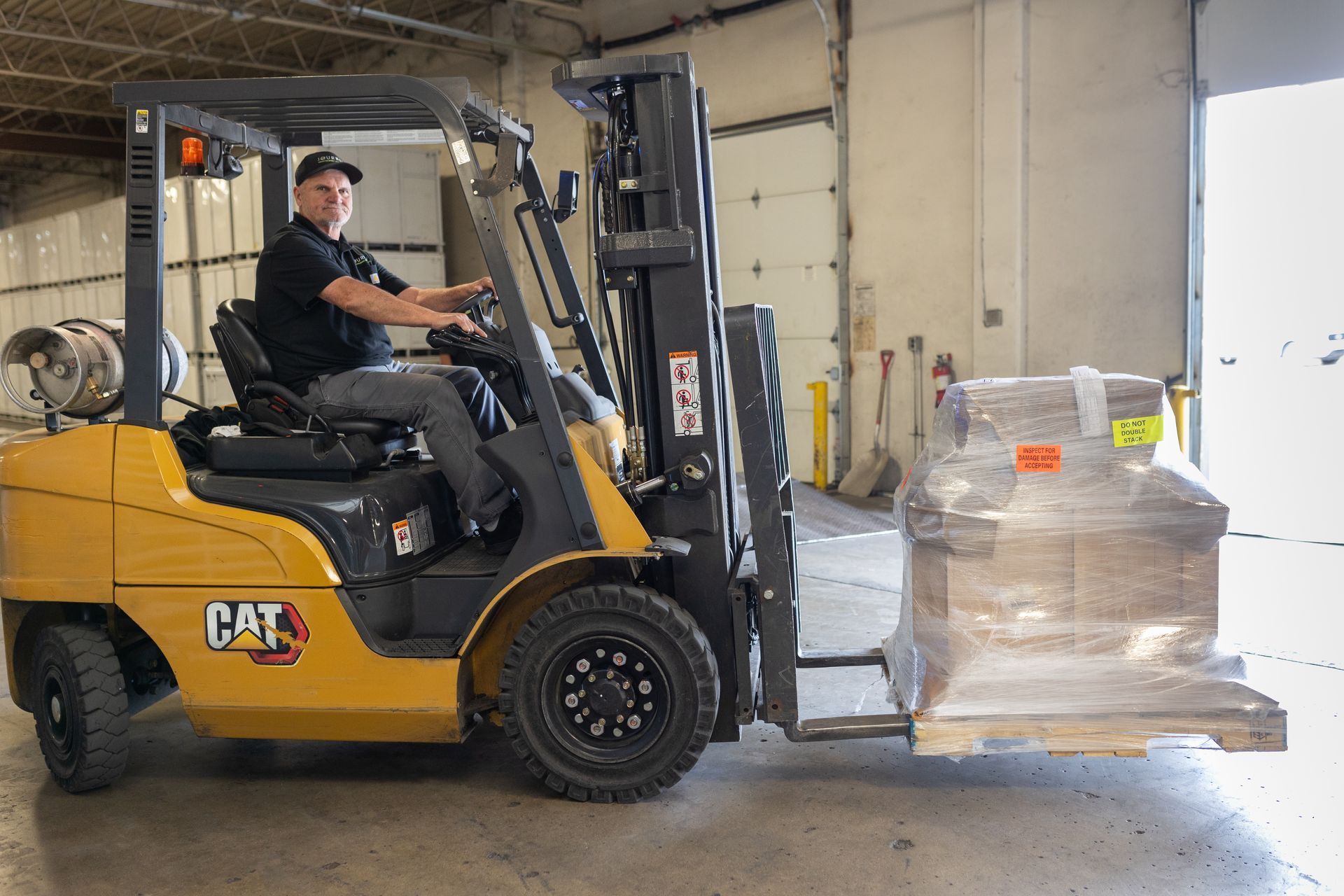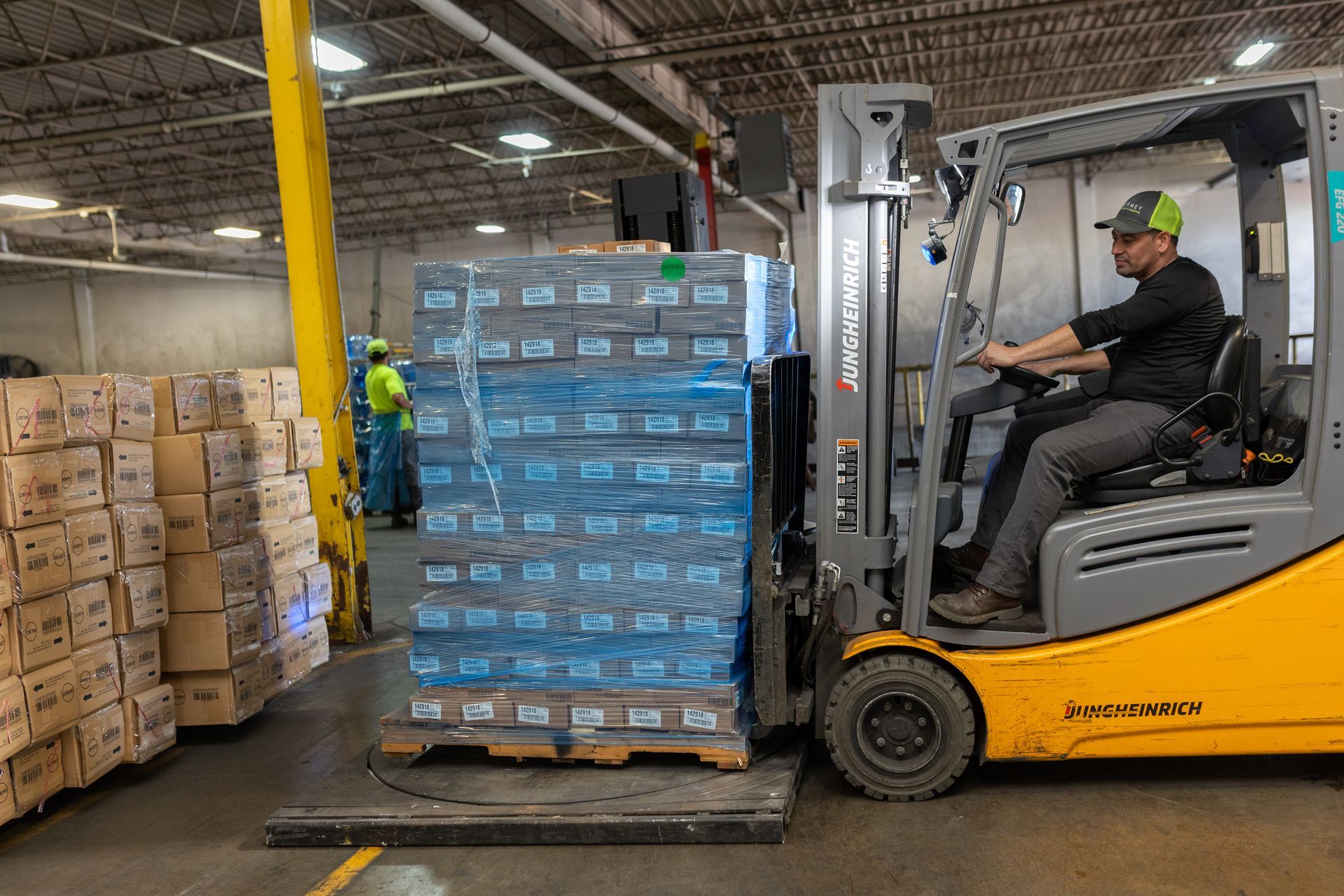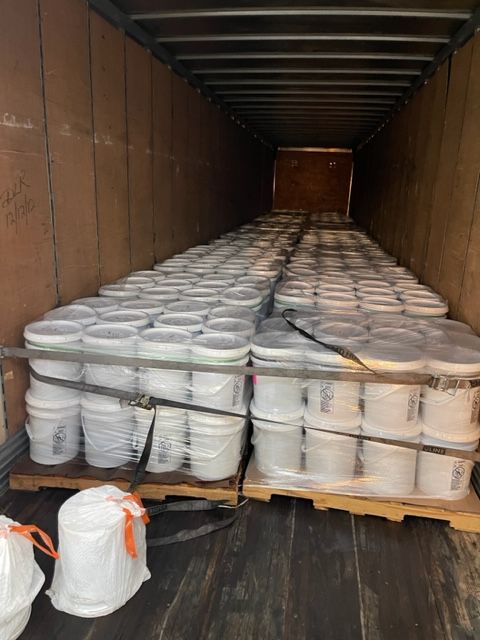Current Available Square Footage: 25,000 square feet of 140,000 square feet available
Essential Tips for Preparing Pallets: A Guide by Journey Warehousing
At Journey Warehousing, we are your go-to experts in logistics and warehousing solutions. Understanding the crucial importance of properly prepared pallets for the safe and efficient transport of goods is at the core of our business. With well-prepared pallets, customers have more reliable deliveries, reduced costs from damage, and fewer insurance claims. Over our years of service, we've identified many preventable issues stemming from inadequate pallet preparation. This guide is crafted to arm you with the best practices for pallet preparation, significantly lowering the risk of damage and securing the safety of your shipments. Explore our expert tips to ensure your goods not only meet but exceed the rigorous demands of transit and arrive safely at our warehouse.
Why Proper Pallet Preparation Matters
Proper pallet preparation is not just about keeping your items intact; it’s about optimizing your entire logistics chain. Well-prepared pallets improve handling efficiency, reduce the risk of accidents, and lower the likelihood of incurring additional costs due to damaged goods. At Journey Warehousing, we prioritize these practices when preparing outbound pallets to help our clients achieve reliable and seamless storage and transportation processes.
- Start with the Heaviest Items Always place the heaviest items at the bottom of your pallets. This creates a stable base and lowers the center of gravity, significantly reducing the risk of tipping during transport. It's a simple step that goes a long way in safeguarding your goods.
- Ensure Even Weight Distribution Balance is key when preparing your pallets. Ensure that weight is evenly distributed across the four corners of the pallet to prevent uneven loads. An unevenly loaded pallet can cause stress on one side, increasing the chance of collapse or damage during movement.
- Secure with Multiple Layers of Shrink Wrap One layer of shrink wrap is often insufficient to secure your items throughout the transportation journey. We recommend wrapping your pallets multiple times with high-quality shrink wrap (at least a thickness of 60-100 gauge) to ensure that all items remain tightly bound and protected against external elements.
- Include the Pallet in Your Shrink Wrapping To further enhance stability, extend your shrink wrapping to include the pallet itself. This technique prevents shifting of the materials on the pallet, maintaining the integrity of your setup throughout handling and transport.
- Use Quality Pallets Start with a solid foundation by selecting high-quality pallets that are free from damage such as cracks, splinters, or broken boards. Quality pallets can withstand heavier loads and reduce the risk of breakdown during transport.
- Cross-Stack Boxes When stacking boxes on a pallet, consider using a cross-stacking pattern where each layer of boxes is rotated 90 degrees relative to the one below. This cross-stacking method enhances the stability of the load by distributing the weight more evenly and preventing vertical seams from aligning.
- Utilize Edge Protectors Edge protectors are an inexpensive way to safeguard the edges and corners of your boxes from damage during the wrapping and strapping process. They also help in maintaining the structural integrity of the load by distributing strap tension evenly. Affix the edge protectors directly to the boxes and then apply the shrink wrap.
- Strap Your Pallet In addition to shrink wrapping, using straps (also known as banding) can provide extra security. Strapping helps hold the load in place firmly, especially during long transit periods or when transporting heavy or unevenly shaped items.
- Label Appropriately Clearly label your pallets with handling and shipping information to ensure they are handled correctly throughout their journey. Use large, readable labels on multiple sides of the pallet to communicate necessary information such as weight limits, fragile items, and stacking instructions.
- Use Shipping Damage Indicators for Highly Sensitive Materials. For items that require careful handling, consider using damage indicators such as Tip N Tell® or Shock Indicators. These tools help monitor the levels of impact your freight experiences during transit. At Journey Warehousing, we attach these indicators to shipments upon request to ensure your items are handled with care in our facility and during transportation. We also provide photographs of the affixed indicators once loaded, offering you reassurance about the safety of your goods. Upon arrival, these indicators will clearly demonstrate whether the items were subjected to any detrimental handling.
- Inspect and Test Your Pallets Before sending them out, inspect each pallet load for any potential issues like loose wrapping or unbalanced items. If possible, conduct a tilt or shake test to check the stability of the load under movement, simulating conditions it might encounter during transport.
At Journey Warehousing, we are committed to providing you with the logistics solutions you need to succeed. By following these essential tips for preparing your pallets, you can significantly reduce the risk of damage and optimize your supply chain efficiency. For more insights and expert guidance, stay tuned to our blog or contact our team of specialists who are always ready to help you streamline your warehousing and logistics processes.
 Rating
Rating
LEARN MORE
SERVICES
All Rights Reserved | Journey Warehouse | Powered By Flypaper | Privacy Policy

